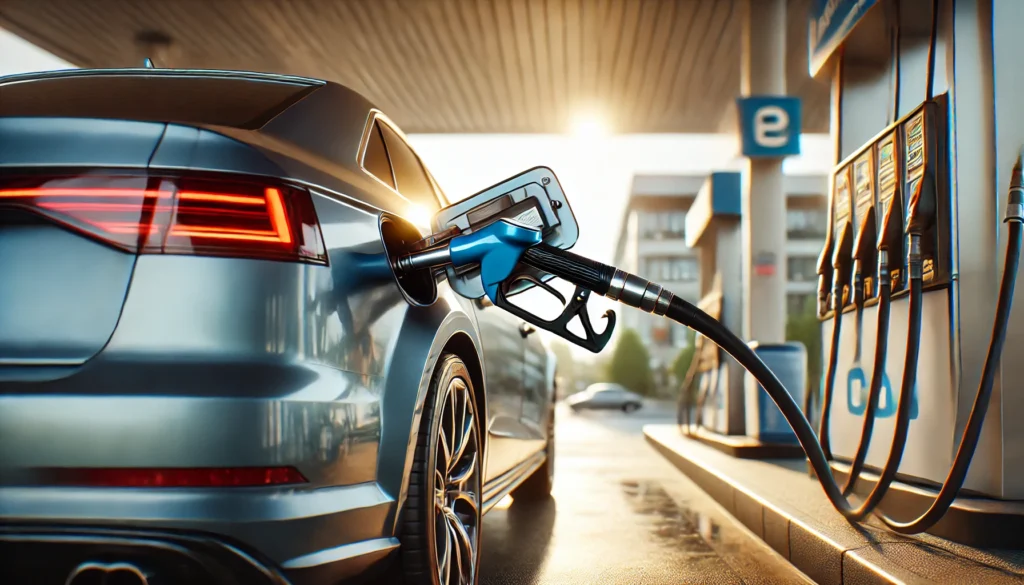
Have you ever wondered why your car’s fuel tank seems to drain faster than expected? With fluctuating gas prices, improving car mileage is more important than ever. Small changes to how you drive and maintain your car can make a significant difference in fuel efficiency and savings.
This guide will teach you how to increase car mileage with actionable tips anyone can follow. You’ll discover essential maintenance routines, driving strategies, and fuel-saving hacks that are not only budget-friendly but also environmentally conscious.
Imagine saving hundreds of dollars annually on fuel while reducing your carbon footprint. Ready to get started? Let’s dive into these proven steps!
Step-by-Step Instructions
Optimize Your Driving Habits
One of the most effective ways to increase car mileage is to adjust how you drive. Aggressive driving—rapid acceleration, speeding, and sudden braking—can lower fuel efficiency significantly.
- Maintain a Steady Speed: Cruise control can help you sustain a consistent speed, especially on highways. Driving at 55-65 mph is generally the sweet spot for fuel economy.
- Avoid Idling: Turning off your engine when parked saves fuel and reduces emissions. Modern engines don’t require warming up like older models.
- Use the Right Gear: In manual cars, shift gears smoothly and avoid driving in low gears longer than necessary.
- Drive Lightly: Accelerate gently and anticipate stops to minimize braking.
Keep Your Tires Properly Inflated
Under-inflated tires increase rolling resistance, making your engine work harder and consume more fuel.
- Check Tire Pressure Monthly: Refer to your vehicle’s manual for the correct PSI (pounds per square inch) and use a reliable gauge.
- Rotate Tires Regularly: Uneven tire wear can lead to inefficiencies. Regular rotation ensures even tread wear.
- Invest in Low-Rolling Resistance Tires: These are designed for better fuel efficiency without compromising safety.
Reduce Unnecessary Weight
Extra weight increases fuel consumption. Keep your car as light as possible by decluttering your trunk and backseat.
- Remove Roof Racks: An empty roof rack creates drag, which reduces fuel efficiency.
- Lighten Your Load: Avoid carrying unnecessary items. For every 100 pounds, fuel efficiency can drop by about 1%.
Perform Regular Maintenance
A well-maintained car runs more efficiently, which helps to improve mileage.
- Change Engine Oil: Use the manufacturer-recommended oil grade to minimize engine friction.
- Replace Air Filters: Dirty filters restrict airflow, reducing efficiency. Replace them as per your car’s manual.
- Keep Spark Plugs Clean: Worn-out spark plugs can misfire, wasting fuel. Check them regularly.
- Inspect Your Fuel System: A clean fuel injector system optimizes engine performance. Use fuel additives or professional cleaning services as needed.
Use High-Quality Fuel and Additives
Fuel quality directly impacts your car’s performance.
- Opt for Trusted Gas Stations: Avoid stations with dubious reputations for low-quality fuel.
- Consider Fuel Additives: Certain additives clean fuel injectors and improve combustion efficiency.
Monitor Your Driving Routes
Shorter doesn’t always mean better when it comes to routes. Traffic congestion, frequent stops, and hilly terrains can consume more fuel.
- Plan Efficient Routes: Use GPS apps that offer real-time traffic updates to avoid delays.
- Combine Trips: Instead of making multiple short trips, combine errands into one longer trip to reduce cold starts.
Troubleshooting & Additional Tips
Common Problems and Solutions
- Problem: Mileage drops despite following the tips above.
Solution: Check for underlying mechanical issues like faulty oxygen sensors or exhaust system leaks. - Problem: Engine performance seems sluggish.
Solution: Ensure timely oil changes and inspect the air intake system for blockages.
Proven Best Practices
- Use synthetic motor oils for better lubrication and efficiency.
- Ensure proper alignment to reduce tire drag.
- Drive during cooler parts of the day when possible to minimize AC usage.
FAQs about How to Increase Car Mileage
1. How does speed affect fuel efficiency?
Driving at high speeds increases air resistance, reducing mileage. Staying within 55-65 mph is optimal for most cars.
2. Can using the AC impact mileage?
Yes, air conditioning consumes extra fuel. Use it sparingly or switch to ventilation when possible.
3. Do hybrid cars offer better mileage?
Yes, hybrids use a combination of gas and electric power, which typically results in higher mileage compared to conventional cars.
4. Is premium fuel better for mileage?
Only if your car requires it. For most vehicles, regular unleaded fuel is sufficient.
5. What role does tire type play in mileage?
Low-rolling resistance tires improve fuel efficiency, while aggressive tread patterns, like those on off-road tires, can decrease it.
6. How often should I check my tire pressure?
Ideally, every month or before long trips.
Conclusion
Improving your car’s mileage is not only achievable but also incredibly rewarding. By adopting fuel-efficient driving habits, maintaining your vehicle, and optimizing your routes, you’ll save money, reduce your environmental impact, and extend your car’s lifespan.
Start implementing these tips today and notice the difference in your fuel consumption. Share this guide with fellow drivers who want to learn how to increase car mileage and benefit from smarter driving!
